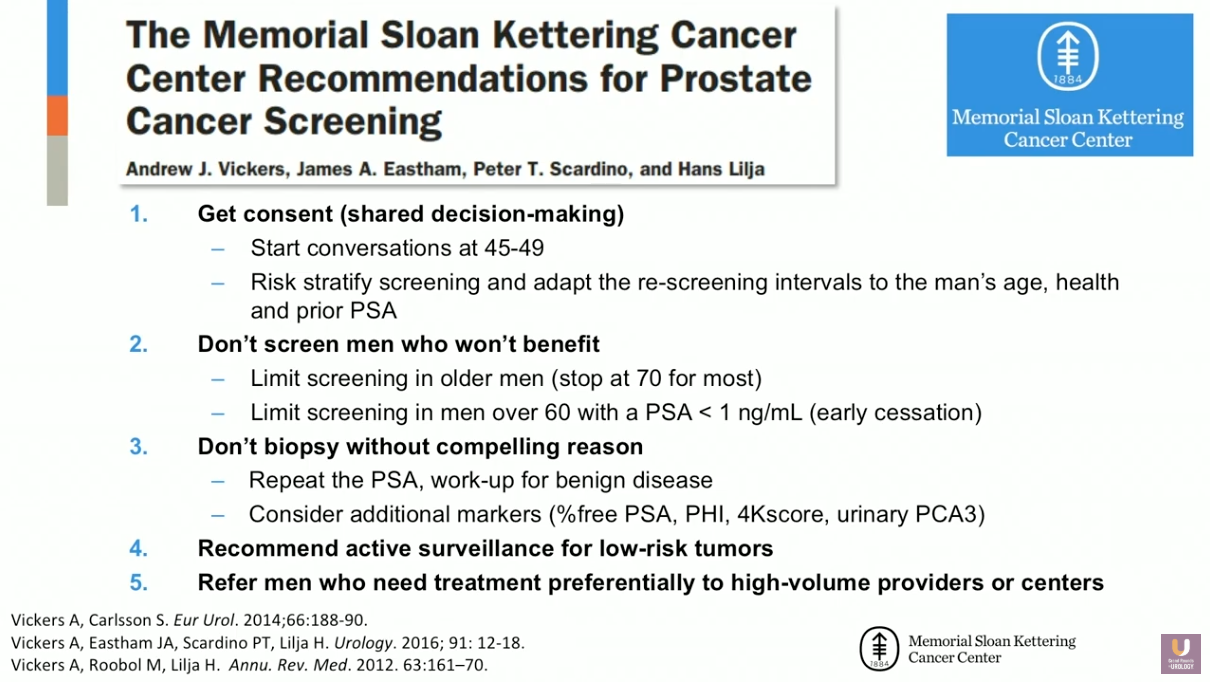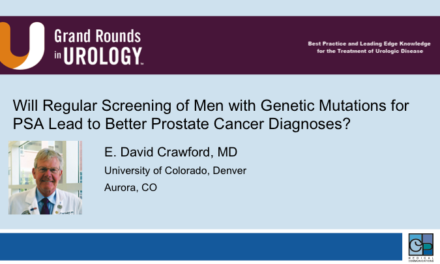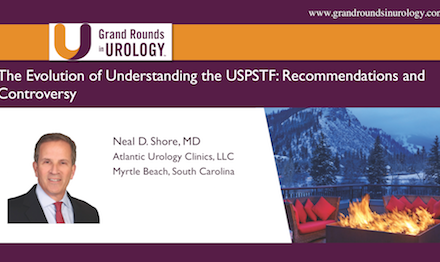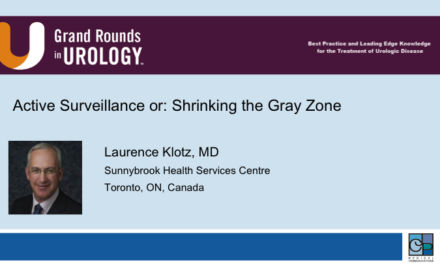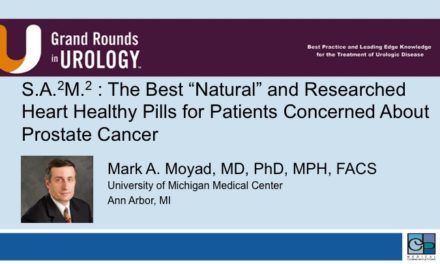Sigrid V. Carlsson, MD, PhD, MPH, presented “Prostate Cancer and Early Detection: Should We Follow the NCCN Guidelines?” during the 27th Annual Perspectives in Urology: Point Counterpoint on November 9, 2018 in Scottsdale, Arizona.
How to cite: Carlsson, Sigrid V. “Prostate Cancer and Early Detection: Should We Follow the NCCN Guidelines?” November 9, 2018. Accessed Dec 2024. https://dev.grandroundsinurology.com/prostate-cancer-and-early-detection-should-we-follow-the-nccn-guidelines/
Prostate Cancer and Early Detection: Should We Follow the NCCN Guidelines? – Summary:
Sigrid V. Carlsson, MD, PhD, MPH, compares the National Comprehensive Cancer Network (NCCN) Prostate Cancer Early Detection v2.2018 guidelines to Memorial Sloan Kettering Cancer Center (MSKCC) recommendations for prostate cancer screening in terms of optimizing oncological benefits and reducing negative effects on quality of life.
This presentation is part of a Point-Counterpoint debate coupled with “Prostate Cancer Screening: The NCCN Perspective” by J. Kellogg Parsons, MD, MHS, FACS.
Shifting the Balance of Prostate Cancer Screening Benefits and Harms
This presentation reviews components of the NCCN Prostate Cancer Early Detection v2.2018 guidelines. These components include baseline evaluation, screening tests, the ages at which to initiate and discontinue screening, frequency of screening, indications for biopsy, and pre-biopsy workup methods that incorporate clinical information, novel biomarkers, and imaging. It will compare the NCCN guidelines with the MSKCC recommendations for prostate cancer screening, which is similarly a risk-based algorithm.
The balance between benefits and harms of prostate-specific antigen (PSA) screening is entirely dependent on how one screens. While screening large populations does improve life years gained, it causes a reduction in quality-adjusted life years (QALYs). Following five straightforward “golden rules” can cause a shift toward a more favorable balance of these benefits and harms.
About Perspectives in Urology: Point Counterpoint
Perspectives in Urology: Point Counterpoint (PCP) is an annual CME-accredited conference devoted to discussing and debating the latest topics in men’s health, general urology, and genitourinary cancers. The conference’s format includes more than didactic lectures. It also includes debates, point-counterpoint discussion panels, and unique case-based presentations. Dr. Carlsson presented this lecture during the 27th PCP in 2018. Please visit this page in order to register for future PCP meetings.
ABOUT THE AUTHOR
Sigrid Carlsson, MD, PhD, MPH, is an Assistant Attending Epidemiologist at Memorial Sloan Kettering Cancer Center (MSKCC) with 15 years of prostate cancer research experience and over 100 publications. Her PhD thesis stemmed from the world’s largest study of prostate cancer screening, the European Randomized Study of Screening for Prostate Cancer (ERSPC), which investigated how quality of life was affected by screening and treatment. Before pursuing postdoctoral studies in urologic oncology at MSKCC, Dr. Carlsson was a physician in Sweden. She obtained an MPH degree from Harvard T.H. Chan School of Public Health.
Currently, Dr. Carlsson’s research focuses on developing risk-stratified approaches to screening, diagnosis, treatment, and follow-up of prostate cancer patients. She is also the PI of a study funded by the Patty Brisben Foundation to improve the method of asking questions about women’s sexual health. She is a co-investigator on a multi-center study funded by Movember (PI: Andrew J. Vickers, PhD) that evaluates the impact of survivorship care plans and navigation tools on patients with prostate cancer after radiotherapy. She is a co-investigator on two NIH-funded research projects, one of which investigates biomarkers and risk stratification in localized prostate cancer (PI: Hans Lilja, MD, PhD). The second project is focused on developing models to improve prostate cancer outcomes across diverse populations (PI: Ruth Etzioni, PhD).

